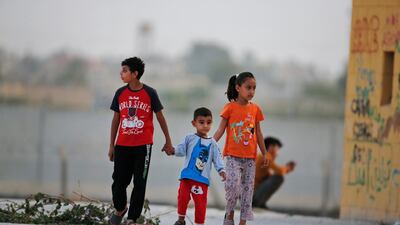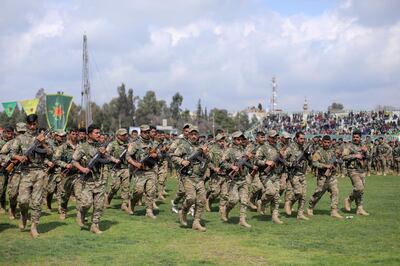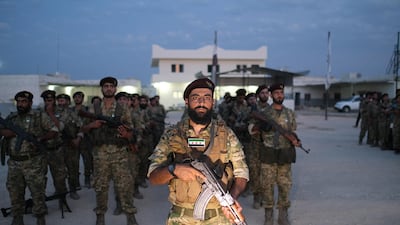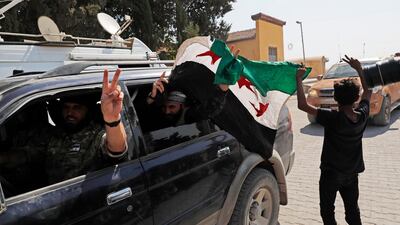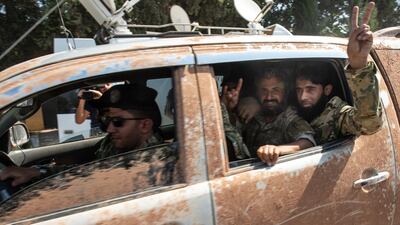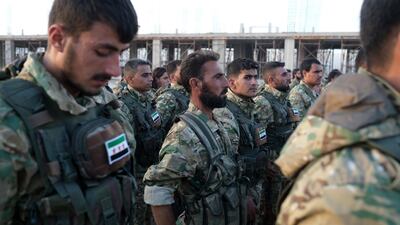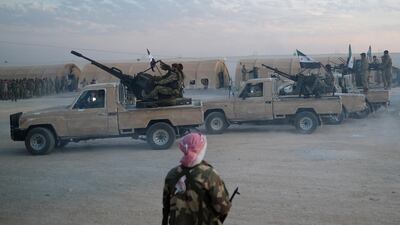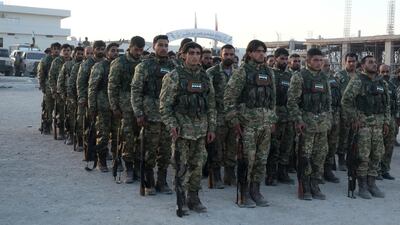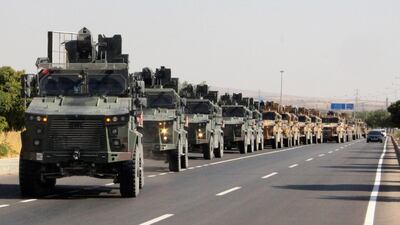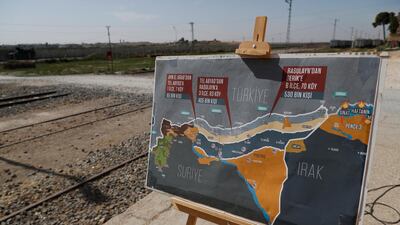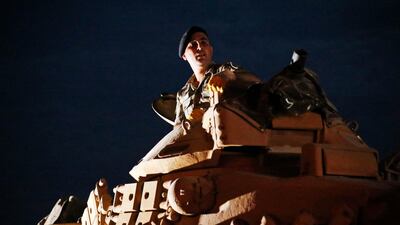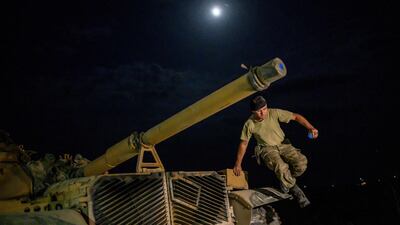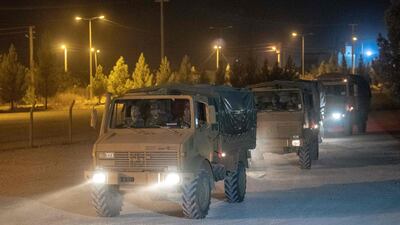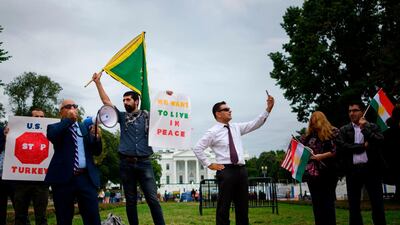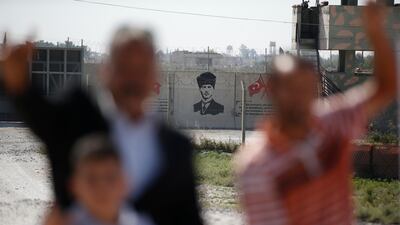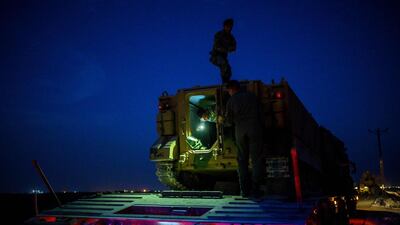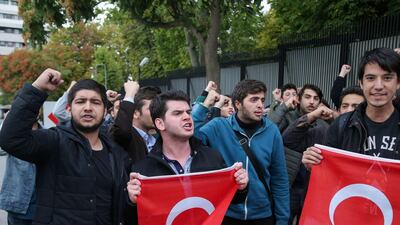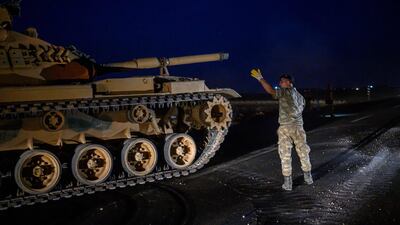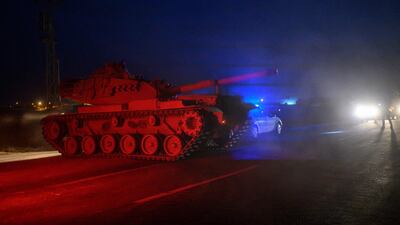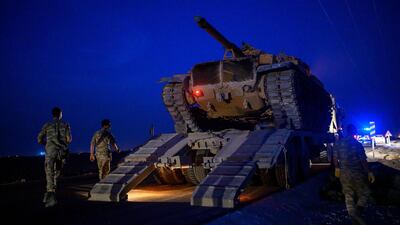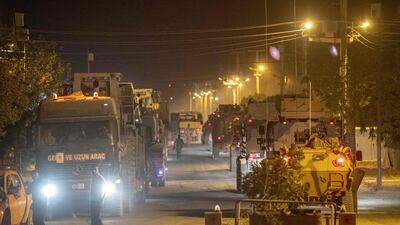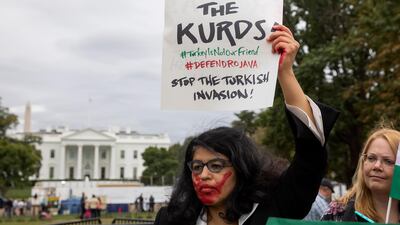Turkey's president Erdogan said on Wednesday that his troops had mounted their first offensive into areas of north-east Syria controlled by Kurdish militia in an incursion that could undermine some local actors and boost others.
The declared intention of the military campaign is to neutralise the Kurdish armed threat and carve out a zone where Turkey would forcibly send Syrian refugees on its territory to resettle.
The north-east, inhabited by Arabs and Kurds, is Syria’s major oil reservoir and accounts for most of the wheat produced in the country. It is dependent on the Euphrates River for agriculture.
It also has several competing military and political factions who are likely to feature heavily in news coverage in the coming days. Here's what you need to know.
People’s Protection Units (YPG)
The YPG is a Kurdish militia in control of large swathes of the north-east and has been an important player in the US-orchestrated defeat of ISIS.
The group is regarded by Turkey as a subsidiary of the Turkish Kurdistan Workers Party (PKK), Marxist-Leninist guerrilla group who have been fighting the Turkish government for decades and are now based in the Kandil Mountains in Iraq.
The YPG is ultimately answerable to PKK commanders based in Kandil and follows the same personality cult of Abdullah Ocalan, the PKK leader imprisoned in Turkey. From the 1970s to the 1990s, the PKK was financed and armed by the Syrian regime.
Starting in 2012, the Syrian regime PKK surrogates, who eventually formed the YPG, were given territory in the northeast as a reward for helping it crush the protest movement against Assad family rule. The YPG added to its territory by overrunning Arab towns and villages held by rebels opposed to the Syrian regime, and later by capturing territory from ISIS. The Syrian regime has a small presence in some of the cities and towns under YPG control, mainly Hasakah and Qamishli. The YPG shares the city of Deir Al Zor with the regime.
Syrian Democratic Forces (SDF)
A Kurdish-Arab military formation that has reached its expiry date, having been established by the US to enlist Arab tribes in the fight against ISIS on the side of the YPG.
The Kurdish-led Syrian Democratic Forces became the main US-backed force in Syria in the fight against ISIS.
In March, the SDF captured the last sliver of land held by the extremists, marking the end of the so-called caliphate declared by ISIS’s leader Abu Bakr Al Baghdadi in 2014. It lost 11,000 fighters in the process.
The Syrian National Army
An amalgamation of Syrian rebel brigades expected to cross the border with the Turkish forces as a proxy of the Ankara government. Turkey formed the group from Free Syrian Army remnants and other rebel brigades who had withdrawn to areas near the Turkish border in Idlib governorate and north of Aleppo. This was due to the Russian intervention in 2015 in support of the Syrian regime, the YPG land grab, and Al Qaeda overrunning territory held by brigades opposed to the Syrian regime.
The Syrian National Army plays an important role in the Turkish strategy because it has been performing the day-to-day ground work in areas west of the Euphrates that Turkey had carved out, including the former Kurdish enclave of Afrin north of Aleppo, which the YPG controlled until Turkish troops overran the enclave in 2018. The group is also working with the Turkish forces, a Twitter account for the operation confirmed Wednesday.
The Kurdish National Council
An alliance of Kurdish political parties backed by Iraqi Kurdish leader Masoud Barzani and opposed to the YPG. The leadership of the Kurdish National Council is nonviolent and many of its members are ex-political prisoners who participated in the civic resistance to Assad family rule. However Mr Barzani set up a dormant militia of Syrian Kurds, trained by his Peshmerga, and attached the militia to the Kurdish National Council, keeping the fighters in northern Iraq.
Kurdish activists, as well as international human rights organisations, blame the YPG for the killing and disappearance in north-east Syria of sympathisers or members of parties that belong to the Kurdish National Council.
Arab tribes
In consolidating Assad family rule, the late Hafez Al Assad tore into the social fabric of the northeast, using divide-and-conquer to subjugate the Arab tribes that had ruled the area and sever their historic connections to mother tribes in Iraq and Saudi Arabia.
Weak and decimated, the north-east tribes signed on the Baathist political system and the different structures that replaced it since 2011. In the regions where the Assad regime withered, the tribes broadly supported the Free Syrian Army, followed by Al Qaeda and ISIS, and became members of the nominal governance established by the YPG. But many harbour decades of hostility to the Kurds because of land and other disputes that have worsened since the YPG takeover.
ISIS
Although the US-backed forces declared “total victory” over ISIS in March this year after the battle of Baghouz, ISIS has gone underground and mounted hit and run attacks against the YPG. The group was seen among the Arab Sunni population of the north-east as a bulwark against Kurdish militia overreach. It still retains latent support among Arabs whose have regarded YPG rule as oppressive, or whose property was confiscated by the militia.
